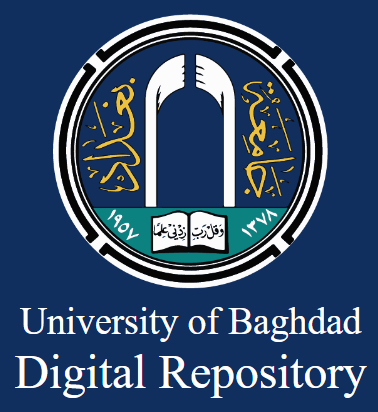فاعلية النسق التفكيكي في العرض المسرحي المعاصر
DOI:
https://doi.org/10.35560/jcofarts104/191-204الكلمات المفتاحية:
الفاعلية، النسق التفكيكي، العرض المسرحيالملخص
لقد عمد الفن المسرحي منذ (افلاطون) وحتى (هيدجر) مروراً (بهيجل) و (هوسرل) الى بث علاقات التوازي بين الانساق الصورية المتداخلة في عالم الفرضيات المزدحمة بالشتات والتناثر وصولاً الى تجليات المعنى المضمر في الخطاب الفكري والجمالي، عبر النسق التفكيكي الذي يعيد تركيب الصورة الجمالية وفق معطيات المقترح الجمالي المراد توظيفه، لذا كان لفاعلية النسق التفكيكي الدور المهم في تفويض المنطق الغائي والاستمراري الذي قامت عليه الميتامعنى الغربية، وخضعت لها الساحة الفنية تساوقاً مع الادب والفن ليتمكن من الالتفات حول المنجز وتوضيحه بصورة أدق واوسع واشمل من التي كانت عليه، وكانت للقراءة التفكيكية معادلاتها السائدة، وخطوطها الرئيسة في (الكتابة والاثر والاختلاف) لذا وقف هذا البحث عند تلك الخطوط وانساقها الوظيفية التي تتموضع في اربعة فصول وهي:
الفصل الاول: الإطار المنهجي، وقد احتوى على مشكلة البحث والحاجة اليه وأهمية البحث واهداف البحث ثم حدود البحث، اما الفصل الثاني: اشتمل اطاراً نظرياً احتوى على مبحثين: الأول: استراتيجية التفكيك من المفهوم الى الاشتغال، والثاني: التوظيف الجمالي للتفكيكيه في تجارب المسرح العالمي.
أما الفصل الثالث: فجاء بالإطار الاجرائي وفيه منهجية البحث، ومجتمع البحث وعينة البحث، والفصل الرابع: تضمن النتائج ومناقشتها، والاستنتاجات ومنها:
1. وظف المخرج العراقي من خلال فاعلية الانساق التفكيكية الازمات السياسية والفكرية والاجتماعية بعد فك الكثير من شفرات الكتابة والياتها.
2. الانساق التفكيكية جعلت العرض امام ثنائيات متضادة يمكن إشغالها في تفهم وقراءة الخطاب المسرحي في العروض انتاجاً وقراءة.
المراجع
Abrams, M. (1987). Modern Critical Schools in the Dictionary of Literary Terms. (A. M. al-Dabbagh, Trans.) Baghdad: Foreign Culture.
Alloush, S. (1985). Dictionary of Contemporary Literary Terms. Beirut: Lebanese Book House.
Derrida, J. (B.T). Writing and Difference. (K. Jihad, Trans.) Morocco: Dar Toubkal.
Engino, M. (1989). On the Origins of the New Critical Discourse. (A. Al-Madini, Trans.) Baghdad: General Cultural Affairs House.
Fadl, S. (2002). Methods of Contemporary Criticism. Merritt: Merritt and Distribution House.
Falan, B. (2010). Screens on Stage. Cairo: Ministry of Culture, Cairo International Festival for Experimental Theate.
Hassan, J. (2020). The dramatic structure in the Qur’anic text “Surat Taha as a model”. Baghdad: Al-Academy Journal, College of Fine Arts, University of Baghdad, Issue98.
Khalaf, Y. (2020). The hypothesis of the aesthetic presence of the role character in the performance of theatrical actor. Baghdad: Al-Academy Journal, College of Fine Arts, University of Baghdad, Issue97.
Khalil, I. (2003). Modern Literary Criticism from Simulation to Deconstruction. Amman: Dar Al-Maysara.
Mahdi, A. (2010). Theory of Modern Iraqi Theatrical Performance. Baghdad: Theater Series.
Musa, F. (2018). the semantic displacement of the sign and the formal formation of the postmodern theater. Baghdad: Al-Academy Journal, College of Fine Arts, University of Baghdad, Issue90.
Musa,, F. (2020). The aesthetics of the Sufi image and its representations in postmodern theater performances. Baghdad: Al-Academy Journal , College of Fine Arts, University of Baghdad, Issue96.
Qatous, B. (B.T). Introduction to Contemporary Criticism Curricula. Alexandria: Dar al-Wafa'a.
Yahya, S. (2021). Al-Jamali’s work for theatrical rehearsal and its directing applications, a play (Sharing a Life as a Model). Baghdad: Al-Academy Journal, College of Fine Arts, University of Baghdad, Issue102.
التنزيلات
منشور
إصدار
القسم
الرخصة
الحقوق الفكرية (c) 2022 Kadhum Imran Mousa

هذا العمل مرخص بموجب Creative Commons Attribution 4.0 International License.













